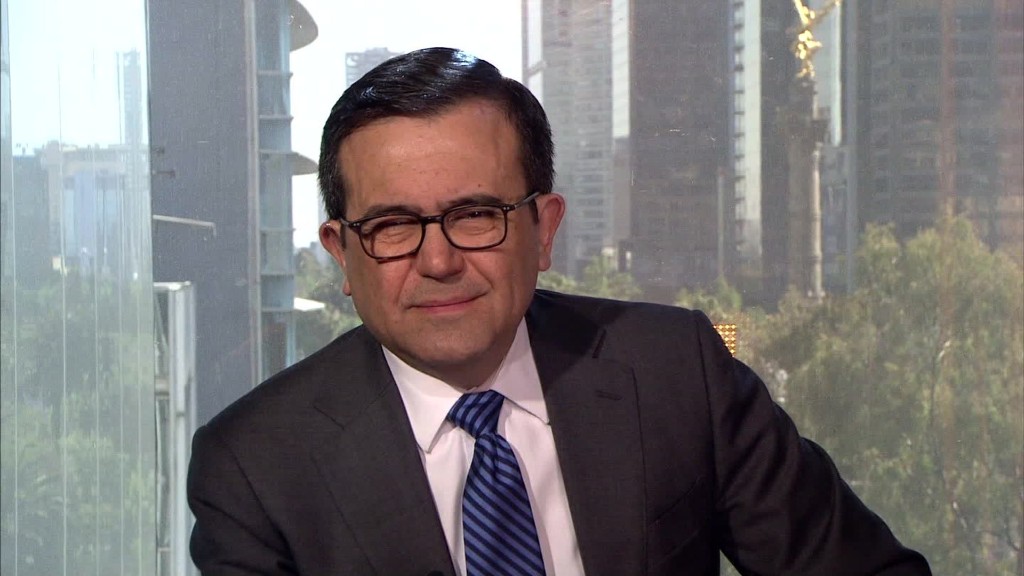
The Trump administration could make a major break from U.S. trade policy and disregard the rulings of the World Trade Organization.
In a paper released Wednesday night, the administration indicated that the U.S. is not bound to the WTO's rulings on trade disputes. That would be a big shift away from the practice of previous presidents.
"Even if a WTO dispute settlement panel...rules against the U.S., such a ruling does not automatically lead to a change in U.S. law or practice," the paper said. "The Trump administration will aggressively defend American sovereignty over matters of trade policy."
In recent decades, the 164 countries in the WTO, which includes China, have agreed to resolve disputes through WTO panels. The Obama administration filed cases in the WTO against Beijing, which led to the U.S. slapping tariffs on Chinese steel last year.
In his address to Congress on Tuesday, President Trump linked China's entry into the WTO in 2001 to the loss of factories in the U.S.
A spokesperson for China's foreign ministry said Thursday that it was committed to working through the WTO and would safeguard the organization's "important status" in global economic governance.
"China has actively supported the work of the WTO since it joined the organization," the spokesperson said. "This position will not change."
If the Trump administration does choose to go around the WTO, the group's influence could be eroded. Countries could matters into their own hands and become more protectionist.
The paper from the new administration acknowledges that there's a cost to not playing by the WTO's rules. If the U.S. loses a WTO case, and it refuses to change its laws or practices, then under WTO laws, the complaining countries have the right to hit the U.S. with trade sanctions.
Related: Rise of the machines: Fear robots, not China or Mexico
"The complaining countries would have the right to be authorized to retaliate by imposing trade sanctions on the losing country," the paper said.
The paper came from the office of the U.S. Trade Representative, a wing of the executive branch. Trump's nominee for USTR, Robert Lighthizer, has not yet been confirmed by the Senate.
The document also admitted two things that seem to contradict Trump's trade talk.
Trump says bad trade deals are the main reason why America has lost millions of manufacturing jobs, and trade deficits are bad for the U.S. economy.
But in the Trump administration's paper:
"Of course, a rising trade deficit may be consistent with a stronger economy."
And regarding lost manufacturing jobs, weak job growth and sluggish economic growth:
"Many factors contribute to this, notably the financial crisis of 2008-2009 and the broad impact of automation."
Many studies on manufacturing show that automation -- robots, new technology -- has taken away far more jobs than trade has.


